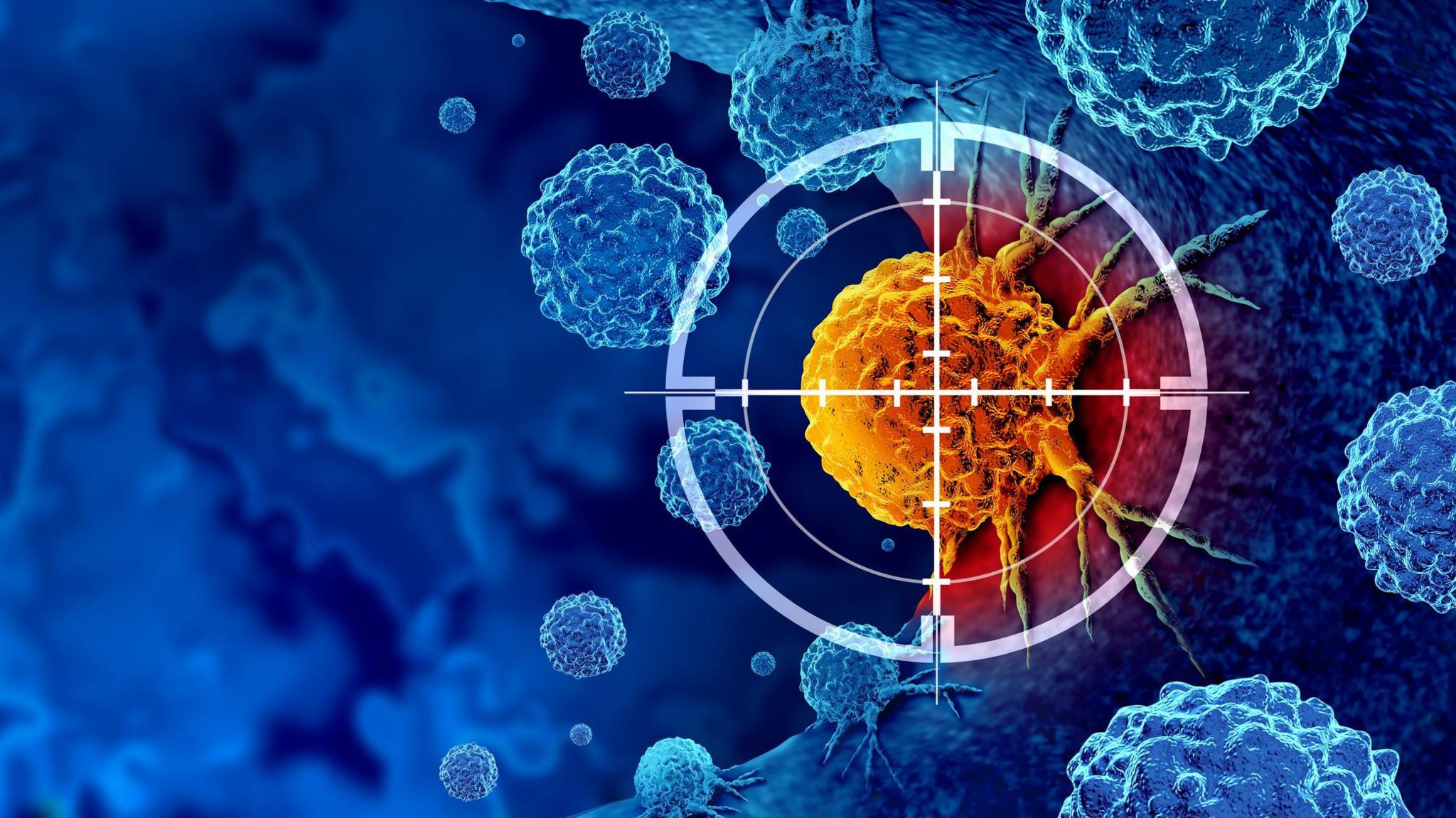University of Surrey leads new cancer research

The study of the fatty molecules from cancer cells was published in the Analytical Chemistry journal
- Published
New cancer research is being made possible by Surrey scientists who are studying the different fatty contents of cancer cells, one by one.
The fatty molecules inside the cells are thought to play an important role in the effectiveness of cancer treatments.
The University of Surrey led the study working with partners at GSK, external and UCL, external.
Dr Carla Newman, from GSK said: “Our new method paves the way for studying cancer cells in detail we’ve never seen before."
Developing new equipment with electrical engineering and software company, Yokogawa, the team were able to lift individual pancreatic cancer cells from a petri dish.
The researchers then stained the cells with dye to monitor the fatty molecules.
Working with partners at Sciex, external, researchers developed a new method to then fragment the lipids in the cells.
Researchers learnt about the composition of the fatty molecules and how cells changed in response to their environment.
Dr Johanna Von Gerichten, from Surrey’s School of Chemistry and Chemical Engineering, said: “The trouble with cancer cells is that no two are alike.
"That makes it harder to design good treatment, because some cells will always resist treatment more than others.
“It has always proven tricky to study live cells after they have been removed from their natural environment in enough detail to truly understand their make-up," Dr Von Gerichten said.
“That is why it is so exciting to be able to sample live cells under a microscope and study their fatty contents one by one.”
Follow BBC South East on Facebook, external, on X, external, and on Instagram, external. Send your story ideas to southeasttoday@bbc.co.uk or WhatsApp us on 08081 002250.
Related Topics
Related Internet Links:
- Published26 March
- Published7 February
- Published29 November 2023